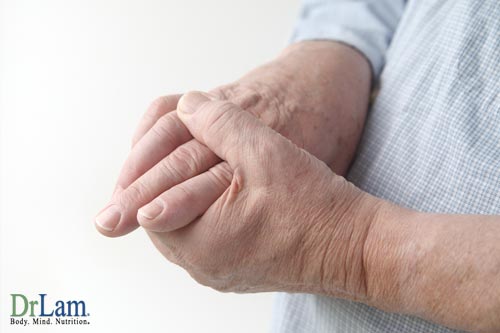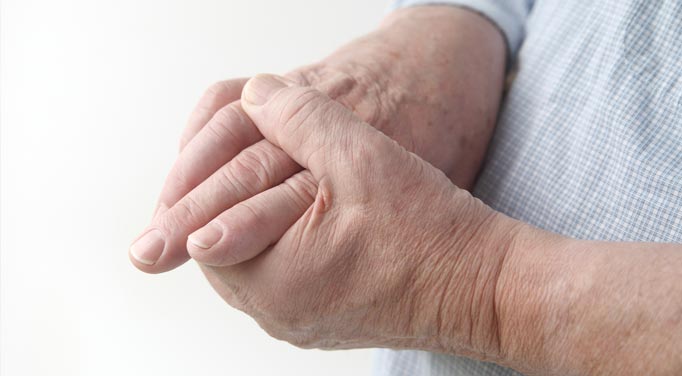 In a study conducted in Hershey, PA, Doctor Sankar Bandyopadhyay and Doctor Sol Dejesus have found that people who suffer from neuromuscular diseases have a high likelihood of being deficient in Vitamin D. This is according to a study presented to the American Association of Neuromuscular and Electrodiagnostic Medicine at their annual meeting in Savannah, GA. The study is entitled "Surprising Prevalence of Significant Vitamin D Deficiency in Neuro-muscular Disease Clinic in Central Pennsylvania".
In a study conducted in Hershey, PA, Doctor Sankar Bandyopadhyay and Doctor Sol Dejesus have found that people who suffer from neuromuscular diseases have a high likelihood of being deficient in Vitamin D. This is according to a study presented to the American Association of Neuromuscular and Electrodiagnostic Medicine at their annual meeting in Savannah, GA. The study is entitled "Surprising Prevalence of Significant Vitamin D Deficiency in Neuro-muscular Disease Clinic in Central Pennsylvania".
This study expands upon previous work that has shown a strong correlation between vitamin D deficiency and certain neuromuscular diseases, including multiple sclerosis, myasthenia gravis, and Parkinson’s disease. The study shows that the deficiency may be more prevalent in more neuromuscular diseases than previously thought, according to association editorial board member Dr. Ileana Howard.
The doctors note that screening for vitamin D deficiency is still not a routine clinical practice, despite reports of deficiency in a variety of conditions causing fatigue and pain. Effective treatment for vitamin D deficiency exists, but deficiencies are frequently missed.
The goal of this particular study was to find out how prevalent vitamin D deficiency was in neuromuscular patients in fall and winter. A biomarker study conducted at Harvard University and published in the October 2013 issue of the journal Neurology found a deficiency in 17.6% of Parkinson’s patients vs 9.3% in a control group.
Dr. Howard explains that the link between deficiency and neuromuscular disease is not fully understood, but may encourage doctors to check vitamin d levels in neurological patients and supplement when needed.
A retrospective analysis of data from the neuromuscular data pool was randomly conducted on patients seen in fall and winter where vitamin D levels were routinely checked for those being seen for weakness or pain, all of whom had a neuromuscular diagnosis. Deficiency was defined as Vitamin D3 levels below 30 nanograms per milliliter (ng/ml). Of 50 patients studied, 11 had severe deficiencies with levels less than 20 ng/ml. Thirteen more were between 20 and 30 ng/ml, for a total of 24 with deficiencies. Another 3 were right at 30 ng/ml. of the remaining 23 patients, 16 were low normal with levels between 30 and 40 ng/ml. This study showed a significantly higher prevalence of vitamin D deficiency than the Harvard biomarker control values.
Fatigue as a symptom of vitamin D deficiency may also be seen as a symptom of adrenal fatigue syndrome (AFS). In fact, this is one of the most common symptoms of that disorder. Especially when the person suffering from AFS wakes up tired in the mornings, even after a long sleep. Feeling tired during the day is another of the symptoms of AFS. Thus, supplementation with vitamin D may ease symptoms connected to neuromuscular disease and AFS.
Current research shows vitamin D to be a significant inhibitor of inflammation. And in the NeuroEndoMetabolic (NEM) stress response model, inflammation is a significant part of body response to any harmful stimuli, including stress. This body response is a major factor in dealing with causes of cell injury. It is also strongly linked to the body’s detoxification system. Lower levels of vitamin D do not inhibit inflammation, which can lead to increasing chronic diseases.
 Low levels of vitamin D have been linked with chronic diseases such as arthritis, a neuromuscular disease. So, supplementation with vitamin D logically would lower the risk of developing such a disease. Vitamin D is also useful as a preventative for falls in older people.
Low levels of vitamin D have been linked with chronic diseases such as arthritis, a neuromuscular disease. So, supplementation with vitamin D logically would lower the risk of developing such a disease. Vitamin D is also useful as a preventative for falls in older people.
How prevalent is vitamin D deficiency? According to the Centers for Disease Control and Prevention, 32% of adults and children in the U.S. have deficiencies in vitamin D. Some professionals consider this to be significantly low because the CDC used levels of vitamin D that were less than optimal in their research.
Estimates are that 95% of senior citizens in the U.S. are deficient in vitamin D. It is this segment of the population who are most at risk for falls that would result in serious injury as a factor of aging. Combining aging with low vitamin D levels suggests the likelihood of serious injury from falls to be great.
Supplementing vitamin D has been recommended for elderly patients at risk of falls and for patients with Parkinson’s disease and myasthenia gravis. More research is needed on the role of vitamin D deficiency in other neurological conditions.
By far the best source of vitamin D is sunshine, but most people get very little during the winter, and many of those who work indoors also get limited exposure. Good dietary sources include fatty fish, beef liver, eggs, and fortified milk.
© Copyright 2015 Michael Lam, M.D. All Rights Reserved.

